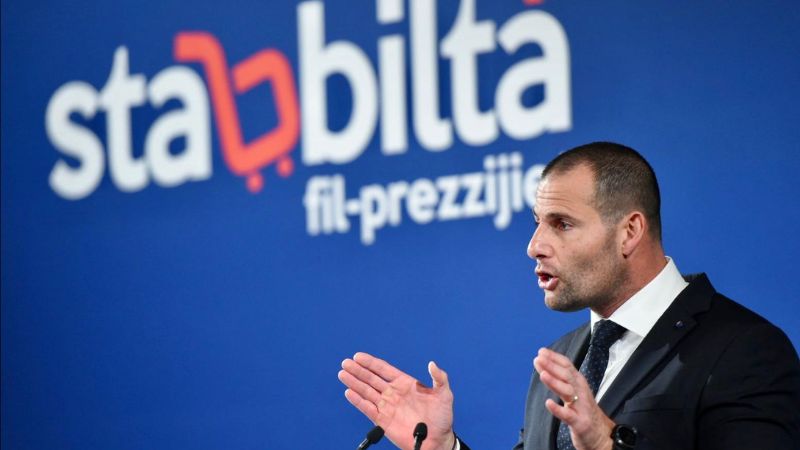The government refuses to publish the agreement it signed with food importers and retailers, reducing the prices of some 15 products in a bid to ease uncontrolled inflation.
Asked repeatedly in parliament to provide a copy of the agreement, Economy Minister Silvio Schembri refused.
While he did not exclude publishing the agreement “in the future”, Schembri said that since other retailers are still signing it, he cannot inform parliament of its contents.
Last month, Prime Minister Robert Abela presided over a ceremony where a few supermarket owners and food importers signed the new price-fixing agreement.
Dubbing it a “historic social pact”, Abela announced that as of 1 February, the price of some 15 staple food items, such as milk, cereal, pasta, and other daily needs, would be reduced by 15%.
According to the government, this mechanism will provide “stable prices until the next budget” and ease the rising burden of inflation.
It is unknown what impact this measure will have on the Harmonised Index of Consumer Prices (HICP) – the mechanism used to calculate the cost of living.
However, National Stastistic Office sources told The Shift that the products included in this mechanism were selected by the government to achieve the highest impact possible on the basket of items used to calculate inflation statistics.
While the government is already pumping hundreds of millions of euro into the economy to subsidise costs, such as fuel, wheat, energy, public transport, and many other essential items, Malta’s inflation keeps rising above EU average levels.
Retail food prices have increased by 9% over the past year.
The government’s initiative, which the business community has highly criticised, was described as a throwback to the 80s when Labour, under former prime minister Dom Mintoff, used to fix prices and limit importation.
Questions were also raised on the legality of the agreement.
Business constituted bodies insisted that most of the signatories were “being forced to sign this agreement” and that it might be in breach of EU competition rules, which precludes price fixing.
Calling the agreement an “artificial intervention in the free market”, the Chamber of SMEs said there was no justification for such an agreement where the food sector “was forcefully asked to shoulder the burden of inflation”.
The Malta Chamber of Commerce also criticised the deal, calling it anti-competitive and a political ploy.
The European Commission has refrained from intervening, telling the media it had no comment.













The whole thing smells 👃🏼 really fishy 🐟.
Again.
Yes, that’s the way to fill 💸 your pockets!
‘Historic social pact’ – my foot.
What is a repetition of history is re-incarnating Dom Mintoff as a street market vendor at one end and a usurper of public funds to interfere in a free market economy at the other end.
Despite all this hulabaloo by a multi millionaire capitalist, Robert Abela, aided and abetted by a schoolboy economist and subservient minister, poverty keeps increasing and food banks keep opening in a ‘l aqwa zmien’ mantra country where sustainable economic development has been conspicuous by its absence in the past 11 years.